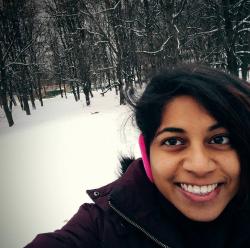The only way to deal with an unfree world is to become so absolutely free that your very existence is an act of rebellion. – Albert Camus
Beyond the house I write this from, it’s a bright, sunny day in Hillsborough, North Carolina. Across the street a rainbow flag waves its welcome and posters with messages of equality, love and acceptance stand rooted in the ground of the liberal land they live on. “Hate has no home here,” proudly declares a multilingual sign around the block.
In this small town in the southern USA, the people have stepped up to show their resistance with love and attention, and in a way not as prevalent as they were before. A visit to America last year didn’t show quite as many pride flags, posters of acceptance from allies and clear displays of welcome towards people of different races, nationalities, colours, orientations. The love was still there, undoubtedly; it just wasn’t as visible to the eye of the casual visitor, nor was there as clear a need as there is now.
This story was meant to be about that. It was meant to be about the infinite amount of love and solidarity I had begun to rediscover, the bright lights that shone through all the negativity we’re fed every day on the news, in the media, in our own social circles. Most of all it was meant to be about a different side of the US that we don’t get to see very often, clouded as it is by bad news, a ridiculous president and the nasty – and therefore newsworthy – alt-right.
I had planned to craft a tale of the massive amount of love and acceptance I’d encountered, of the truth and tolerance displayed by progressive allies welcoming all people every way I looked. I’d wanted to share the same joy I felt when I first got here three weeks ago.
And then Charlottesville happened.
It was then impossible to ignore the fact that amidst all the outward positivity and pride, I had also seen a house with Confederate flags waving ominously, proudly (two, next to each other, just in case you missed the point), a stain on the surrounding scenery; the rest of the neighbourhood was rich with LGBT flags and Welcome signs.
It was hard to forget the two gentlemen who stared hatefully at people of colour who dared to occupy the same space as they did at a car rental shop. And it was impossible to miss the developing details on the news, which showed way too many (which is any number above zero) white supremacists and KKK members who stormed the streets and university in Virginia, just a couple of hours away.
It was also impossible to ignore the silence of the people – who had once spoken proudly of equality, their country and of their own loving natures – now staying silent amid the chaos of the actions, and the deafening inaction of the people whose role it had been to lead.
Now, I can’t say for sure that this is rock bottom, but I’d dare suggest that white supremacists marching on the streets and chanting Nazi slogans while waving guns is pretty close. The KKK had come out from under their hoods – both literally and from the anonymity of the internet – to terrorise the streets with their threats, hateful cries and abhorrent intolerance.
With freedom and the First Amendment comes a condition of peaceful assembly; this condition was exhausted and exceeded in the Charlottesville march with many injured, the life of Heather Heyer taken, and the safety and freedom to exist tainted by a shade of fear for people of colour, Jews, the LGBT community, women and other marginalised groups – basically anyone who isn’t a white male on the same side.
It is a terrifying thought to consider, and these are indeed terrifying and trying times. But through the fear, America does what America does best: it stubbornly persists – it wonderfully and quite boastfully resists.
A week later in Boston, at a similarly themed protest, counter-protesters swarmed the streets, keeping a small group of fringe conservatives far from their mission of spewing hate in the false name of free speech. Tens of thousands people marched to show that even if their government would not respond as strongly as was required, the people would step up, and the people would not back down. Across the country statues were torn down, petitions were signed, voices echoed louder than before, and the US demonstrated the best side of the democracy many countries still envy today.
Today is the last day I spend in America, and it is with a heart both heavy and hopeful that I leave, and with more questions than I arrived with. If a country begins to rise up and speak at its strongest when it is thoroughly shaken, what of the rest of us, who live in a continued state of comfort and political indifference? Must we, too reach rock bottom before we begin to rise?
The day I write this is also the day of the rare, total solar eclipse, and this natural phenomenon presents a perspective as strong as the sun the world is watching: that as division continues and sides are strongly taken, the people, like it or not, stand on the same land.
And as the war rages on between left and right, right and wrong, love and hate, fear and courage, for a few minutes in the USA one afternoon in August 2017, everyone stopped for a moment to consider the sky.
